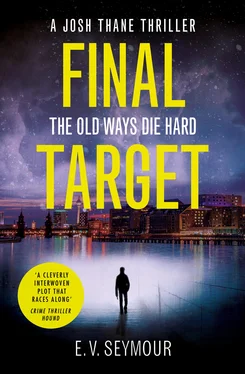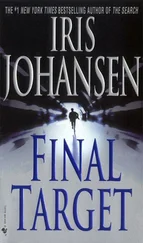Once I’d got everything straight in my mind, I called Pallenberg’s grieving family. A woman, who I assumed was Gisela Pallenberg – Lars’s mother – answered the phone in German. I started off by asking whether she spoke English.
‘ Ja , a little.’
‘My name is Stephen Porter. I knew Lars well.’
‘An English friend?’ Surprise, then hope, flared in her voice.
‘I’ve been travelling through Russia for the past few months and have only recently heard the news of his death.’
‘We are so terribly shocked. We still don’t really know what happened.’
‘Would it be possible for me to come and visit?’
‘You are here in Berlin?’
‘For a few days, yes.’
‘Then you must come. Can you visit tomorrow?’
‘Of course, what time?’
‘Wait one moment.’
I listened to a muffled exchange that grew in sound and clarity. A man came on the line, Werner Pallenberg, I guessed, his delivery gruff and final. ‘Mr Porter?’
‘Yes.’
‘My wife is mistaken. We have no wish to see you.’
‘But –’
‘That’s all we have to say. Goodbye.’
I don’t easily do ‘no’. Had Mrs Pallenberg opened her heart to me, I’d have respected the woman’s sensibilities and taken the next flight back. But she hadn’t. She’d been overruled.
The next morning I took breakfast in the hotel dining room and around ten o’clock stepped out onto the street and headed towards Unter den Linden under a chilly, two-tone sky. Like a greyhound released from its trap, I buzzed with excitement. It was good to be out and about in a city that was foreign, yet familiar to me, and I quickly made my way down what was arguably the most famous street in Berlin. Here, statues stared down from the tops of buildings like Roman gods watching over the mortals below. Heading east, I crossed over where the River Spree intersects and passed the Marienkirche, a lonely church overshadowed by its near neighbour, the Fernsehturm, or Television Tower, on my right.
Most of Berlin is clean and free from litter but there are odd pockets of resistance. Karl-Liebnecht-Strasse is a busy road flanked by large, unattractive grey buildings, like old containers rusting away, covered in graffiti and in the process of demolition. Whether it was the grim reminder of a city torn in two by checkpoints, Cold War politics and casual brutality, or the fact that the air temperature had dipped, I felt a sudden stutter of unease.
Stopping suddenly, as if I’d forgotten something, I twisted around, taking a long look back. A group of Chinese students, with a guide in tow, headed my way. Beyond, male and female pedestrians, young and old. Nobody looked shifty or out of place, or interested in me. No one had a suspect comma, or listening device in their ear, or talked into their cuff, or muttered to themselves or others. A glance at the road revealed nothing I didn’t already know. I could have put my anxiety down to a sudden attack of nerves. I’d been out of the game for over a year. I no longer carried. I was out of my comfort zone. But my instincts are strong and, for reasons I didn’t like to consider, my foe-detector was on high alert. Rattled, I headed straight to the nearest café.
It was dark, ratty and mostly empty. I took a table right at the back, near a fire exit, and with a good view of the door. In true Germanic fashion, a jolly, dark-haired waiter with a round face and excellent English appeared. I ordered coffee and cake and, under the guise of studying the menu, watched for anyone entering the premises. Apart from a young mother pushing a child in a buggy who came in a few moments later, the only customers were me and another guy finishing a meal. I started to chill and my order arrived.
‘There you go, sir. Are you visiting for the first time?’
‘No.’
‘You have business here?’
I glanced up, met the young waiter’s eye, and cast him the type of look that would silence a comedian on amphetamines. He got the message and scurried off.
The coffee was good – strong and bitter – the cake, which came in the form of a doughnut, less so. I ate, drank and thought about what had happened. Except, nothing had happened. I’d got spooked, that was all. My mind switched to McCallen. What exactly had she got me into?
It’s almost impossible to know a person completely. People are strange by definition. I knew bits about her, maybe more than some, her spy status making her remote and maddeningly unreachable. But one thing I knew for sure, McCallen always had a hidden agenda. She’d be looking at you one way with those big green eyes while her feet pointed in another direction. Had she been foolish enough to mention my leave of absence to someone she shouldn’t? Was she in cahoots with Mossad? If she saw a way to advance her career, she’d have no hesitation in shopping me.
I paid and, glancing both ways, set off. The two-tone sky had decided to snow and I rolled up the collar of my jacket.
Pallenberg’s grieving family lived in Prenzlauer Berg, a recently gentrified area of Berlin short on accommodation and big on bars and cafés. Artists and writers had once monopolised the area, but in the wake of redevelopment, the hard core had fled to other areas like Friedrichshain and the Turkish enclave of Kreuzberg. In recent years, Prenzlauer Berg had become a magnet for young professionals seduced by wide-open green spaces and contemporary architecture. Conversely, it had also been the target for a spate of arson attacks, a case of the ‘have-nots’ rising up against the ‘haves’, the latter eager to dance to a man like Dieter Benz’s anti-immigrant, racist tune.
My destination was a renovated factory divided into apartments. Crossing a park and threading my way through a couple of squares, I appreciated the appeal of the area. Wide streets, galleries and cafés gave the location an arty, open vibe, the odd building waiting patiently to be restored like a rotten tooth in a set of perfectly maintained molars.
Snow gusting around me, I hurried towards a glass-fronted building with loft-style architecture, including a community rooftop terrace and traditional Berlin balconies with granite windowsills. I imagined an interior of light oak parquet flooring, and white and chrome state of the art sanitary ware.
Inside the main entrance, I took an elevator to the third floor. I was hoping to get lucky and catch Mrs Pallenberg at home while her husband was at work. Stepping out, I almost collided with a young woman.
‘Sorry.’ With a heavy German accent, she spoke in English, which immediately got my attention. Small, petite, with big eyes the colour of tannin and a sweetly dimpled chin, she appraised me with a smile, as if she knew me. Did I have a label plastered on my forehead?
‘Should I know you?’ I said.
She flashed another smile. ‘You’re Stephen, aren’t you? Stephen Porter?’
‘Lars’s friend, yes.’ My mind teemed with possibilities, McCallen setting me up the clear favourite. Was it possible that this small creature in her pixie boots, layered clothing and suspiciously easy smile was about to take me out?
‘Mathilde Brommer,’ she said. ‘I’d hoped you’d show.’
I can usually cover my feelings well, but my guard was down. Call it stranger in a strange land syndrome. Mathilde glanced over her shoulder. ‘You’ll never get in. Werner is very protective of his wife. They’ve had a bad time with the press, you see.’
‘I understand, and Mr Pallenberg, is he at home now?’
‘ Ja .’
‘Right,’ I said. Inside, I was uncertain. Outside, I maintained eye contact.
Mathilde tilted her head. Her shoulder-length wavy hair fell to one side, her exotic scent circling me like smoke around a fire. ‘I don’t remember Lars talking about you.’
Читать дальше












